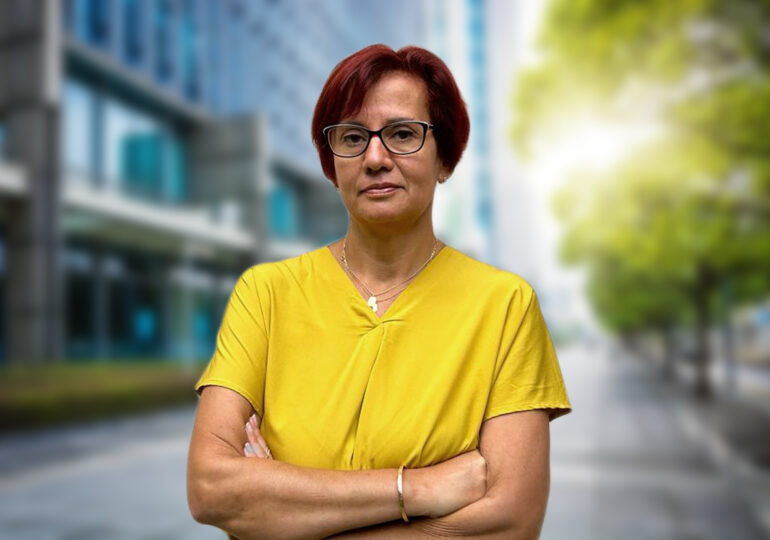Over half of Romanians, more precisely 54.4%, wish, according to an INSCOP survey, for a president independent of political parties.
According to INSCOP director Remus Ștefureac, it is a majority option regardless of age category or the type of locality they live in, which explains why almost all candidates from political parties measured for the presidential elections have a lower intention to vote than the parties they represent.
At the same time, presidential elections invariably trigger the highest energies and emotions, because the position is seen as the seat of supreme, if not absolute, power in Romania.
Is it really so?
Former presidential adviser to Traian Băsescu, Adriana Săftoiu, who was in the inner circle at Cotroceni for years, openly stated on Europa FM that the power of the presidential office is overrated in Romania. An assertion fully supported by constitutional provisions.
The current Romanian Constitution was drafted immediately after Ceaușescu's fall, and its "parents" were forced to strike a balance between the very recent trauma of the dictator, i.e., the concentration of power in one hand, and the fact that the central figure of the transition was President Iliescu, who could not be left in a decorative position.
This led to a rather complicated system of power-sharing, at times insufficiently detailed (but not all the follies of contemporary politics could have been anticipated, admittedly), of a semi-presidential republic attenuated compared to France.
Meanwhile, in successive political wars, a Constitutional Court turned into a state within a state has pruned the constitutional powers of the president. In addition, the logic of the constitutional architecture, especially the sharing of executive power between the president and the prime minister, resulting (directly and indirectly) from concurrent elections, was shattered by extending the presidential term to 5 years.
What are the real powers of a Romanian president?
The wording in Article 80 of the Constitution is generic: "1) The President of Romania represents the Romanian state and is the guarantor of national independence, unity, and territorial integrity of the country.
(2) The President of Romania oversees the observance of the Constitution and the proper functioning of public authorities. For this purpose, the President mediates between the powers of the state, as well as between the state and society."
Beyond it:
- The President presides over CSAT, but the decisions of this body are consensual.
- Appoints the Prime Minister, but Parliament can reject the appointment. And once invested in office, the Prime Minister cannot be dismissed by the President.
- The President can dissolve Parliament, but only if it rejects two successive proposals for Prime Minister within 60 days, a continuity that Parliament can interrupt at any time by appointing a Prime Minister who is then thwarted at every turn.
- The President can be suspended by Parliament for one month, until the recall referendum, during which an interim president assumes the vast majority of duties, including the most important ones.
- The President proposes the heads of SRI and SIE, but they must be voted on by Parliament. Appoints the deputy chief and deputies of the SRI director, but at the director's proposal. Appoints the director of SPP, but based on a consensual proposal from CSAT.
- The President can convene referendums, but, as we have seen, the enforceability of their outcomes is limited to the fact that legislation cannot be enacted against validated results.
- The President appoints ministers by decree, but only at the Prime Minister's proposal, and according to the CCR, can reject, with justification, a single proposal. Dismisses ministers, without being able, also according to the CCR, to refuse to sign the dismissal decree if the Prime Minister's request meets the legality conditions.
- The President appoints chief prosecutors, but based on the Minister of Justice's proposal. And was forced by the CCR to sign the dismissal of a DNA chief prosecutor requested by the Minister of Justice.
- The only exclusive and practically unrestricted powers of the President relate to foreign policy, the appointment of ambassadors, and the awarding of decorations.
He has no direct powers related to the economy, education, health, or the daily lives of people in general. He can only exercise them through a partnering Prime Minister. The only one who succeeded in the long term was Ion Iliescu, and only with Prime Minister Văcăroiu.
The real power of the president thus comes from the people's mentality needing a leader to relate to, positively or negatively, from the people's feeling that they must have a direct connection with the leader, and depends on two aspects:
1. The extent to which the president manages to control a political force to form majorities and govern effectively. This is why a truly independent president, so desired by the people now, has no chance of a successful mandate.
2. The extent to which he is willing to play at the edge of the Constitution or beyond.
This mix defines what Romanians call the player president. Traian Băsescu was an acknowledged player, openly facing tough opponents. Iohannis was a perverse player, gradually neutralizing any adversary and potential high-caliber opponent.
Klaus Iohannis also benefited from the 10-year mandate of Băsescu, who strongly shaped this presidential model.
When it comes to amending the Constitution, it would be worth considering how we can overcome the paradox between the way the president is elected and the expectations invested, on the one hand, and his constitutional powers.
Personally, I am in favor of a presidential republic modeled after the United States, where the president, elected by universal (and direct in our case) vote, is also the head of government and has all the executive levers to fulfill the role for which he was elected. Or at least a realignment of parliamentary and presidential elections would be necessary.
But considering the current quality of the political class, an endeavor like revising the Constitution, of great subtlety and importance, requiring much wisdom and book knowledge, is totally not advisable at this time.

